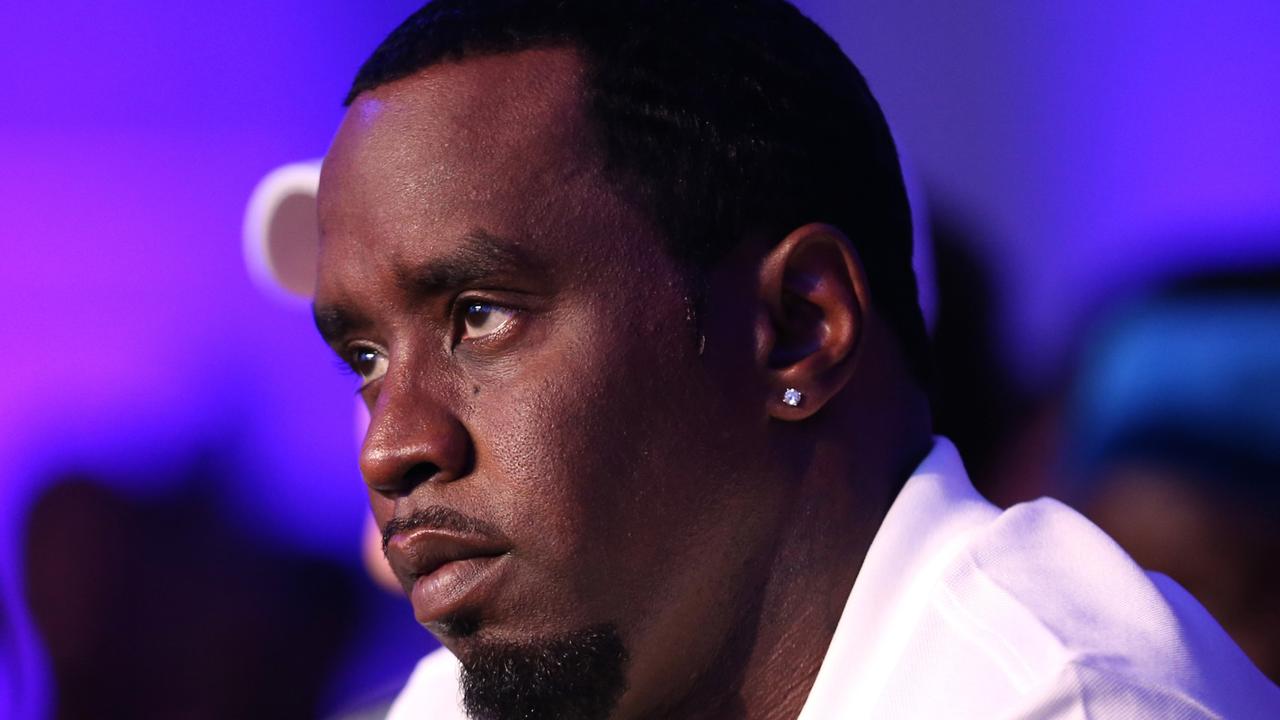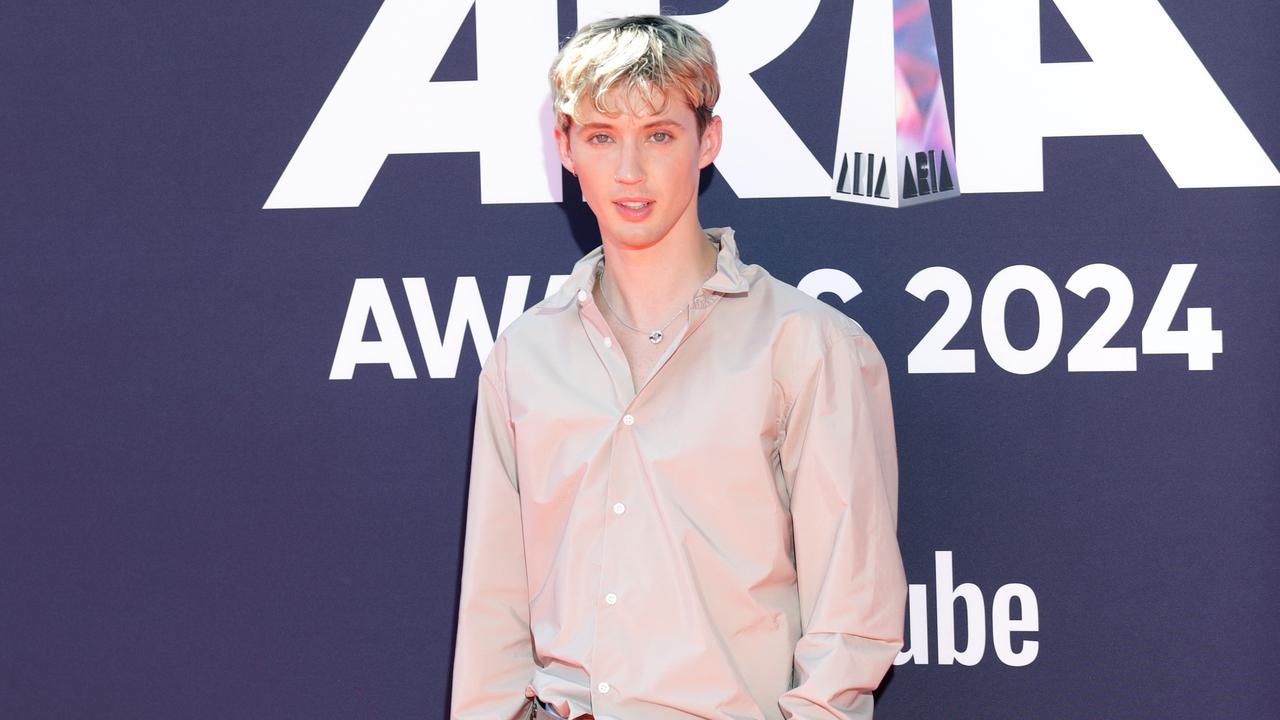What’s in a name: Is AC/DC still the same with only Angus Young? Or Pink Floyd without Roger Waters?
GUITARIST Angus Young plans to continue AC/DC despite being the last man standing. So how many members can a band can lose before it stops being that band?

Music
Don't miss out on the headlines from Music. Followed categories will be added to My News.
WHEN does a band stop being a band? The news this week that Angus Young planned to continue touring as AC/DC despite singer Brian Johnson being sidelined for medical reasons, raised plenty of eyebrows.
Plenty of bands have survived changing a singer — Johnson himself was replacement for the late, great Bon Scott, who was in turn a replacement for original front man Dave Evans. But when it comes hard on the heels of losing founding guitarist and driving force Malcolm Young, also to ill health, and long-time drummer Phil Rudd to criminal charges, it poses the question of whether Angus and his ring-ins can legitimately still call themselves AC/DC any more.
The rock and roll road is littered with casualties, from untimely deaths to the age-old bust-up euphemism of “creative differences” but as often as not bands choose to soldier on — or split into rival camps. There are plenty of bands still touring and recording despite featuring only one (or even less!) original members. But are they still the real deal or glorified cover bands?

Pink Floyd
The UK prog-rockers survived the loss of mercurial front man Syd Barrett in the late ‘60s to become one of the biggest acts in the world during the ‘70s thanks to a string of hit albums such as Dark Side Of the Moon, Wish You Were Here and The Wall. But when Roger Waters pulled the pin in 1985 after increasingly fractious relationships with his band mates, it sparked one of the most bitter feuds in rock history. In the ensuing legal battle he said that Pink Floyd were a “spent force creatively” and that the name should be retired. Guitarist David Gilmour, keyboardist Rick Wright and drummer Nick Mason begged to differ — and continued to tour stadiums for another decade and released albums as Pink Floyd right up until 2014’s The Endless River. And after years of resisting, Waters finally embraced the Floyd catalogue, with hit tours of both Dark Side Of the Moon and The Wall.

Guns N’ Roses
Despite giving Guns N’ Roses part of its name and fronting it during its multi-million-selling glory years, it’s widely accepted that once Axl Rose ditched his band mates — and particularly revered guitarist Slash — the game was pretty much up for the LA rock band. Rose continued to tour with a revolving door of band members and eventually released Chinese Democracy in 2008, which took more 15 years and in excess of $15 million to make. Their 2013 Australian tour was more like Guns For Hire N’ Roses, and it was hard to shake the feeling of watching a Gunners covers band, albeit a damned good one, right down to hatted Slash-alike guitarist DJ Ashba. Clearly some fences have been mended though — Slash and bassist Duff McKagan are back in the fold and a rebooted Gunners will headline the Coachella Festival in the US next month.

The Beach Boys
Even though he was recognised as the band’s creative and driving force, troubled genius Brian Wilson’s relationship with The Beach has always been a complicated one. The band’s defining moment, the 1966 album Pet Sounds, was effectively a Wilson solo project and mental health and substance abuse meant he drifted in and out of the line-up. By the late 1980s, the band was hopelessly split with Wilson, Mike Love and Al Jardine all at one point vying for the right to use the Beach Boys name or some version of it. Things had become so fractious that by 2008, Wilson told this publication: “There isn’t anybody — my publicist, my wife, my managers, myself, my current group — I don’t think any of us think there is any hope for a Beach Boys reunion.’’ But by 2012 they had mended their fences enough for a combined 50th Anniversary tour, before heading their separate ways again. Love toured his version of the Beach Boys here as recently as last November, and Wilson will perform Pet Sounds in full as well as other hits for Bluesfest and sideshows later this month. Will the real Beach Boys stand up please?

Little River Band
Named after the Victoria coastal town, Little River Band’s glory days were in the 1970s and ‘80s when the core songwriting team of Glenn Shorrock, Beeb Birtles and Graeham Goble came up with hits such as Reminiscing and Help Is On the Way. By the late ‘90s though, all three had left and/or sold their rights to the name, which ended up with Stephen Housden, who had been a band member since 1981. When Shorrock, Goble and Birtles re-formed in 2002, proposing to perform as The Original Little River Band, the battle went all the way to the Federal Court of Australia. They ended up touring as Birtles Shorrock Goble, while The Little River Band, now without even Housden, who left in 2006 but still owns the rights, continues to tour the lucrative US casino circuit. When the band celebrated its 40th anniversary last year, none of the original members were invited.

INXS
The Aussie rockers were already on the wane by the time they lost charismatic front man Michael Hutchence in 1997 — but the other five original members gamely decided to soldier with a procession of replacement singers including Jon Stevens and Terence Trent D’Arby. In 2004 they found a new front man in JD Fortune through a reality TV show, recording new material first with him and then with Ciaran Gribbin. Neither really took though — and despite the band being otherwise unchanged for 35 years, fans just couldn’t accept INXS without Hutchence out front.
Originally published as What’s in a name: Is AC/DC still the same with only Angus Young? Or Pink Floyd without Roger Waters?


